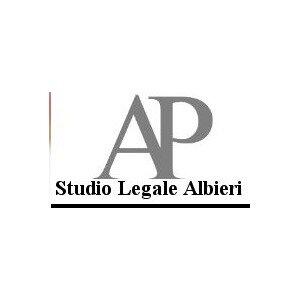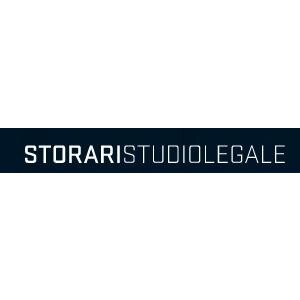Best Water Law Lawyers in Verona
Share your needs with us, get contacted by law firms.
Free. Takes 2 min.
List of the best lawyers in Verona, Italy
About Water Law in Verona, Italy
Water Law in Verona, Italy refers to the rules and regulations governing the use, management, and protection of water resources within the province and municipality of Verona. These laws oversee the allocation of water for agricultural, industrial, residential, and environmental purposes. Water Law covers aspects such as water rights, permits for usage, quality standards, pollution control, and dispute resolution regarding water access. Verona, situated along the Adige River and featuring an extensive network of canals and irrigation systems, follows regional and national Italian water legislation while also applying local regulations tailored to the area's needs.
Why You May Need a Lawyer
A lawyer specializing in Water Law can help you navigate complex legal scenarios involving water usage and rights. Common situations where legal assistance may be necessary include:
- Disputes over water rights between neighboring landowners or water users
- Securing or disputing permits for well drilling or water extraction
- Enforcement actions due to alleged water pollution or illegal discharge
- Issues related to irrigation for agricultural land
- Concerns regarding the construction and management of private or public water infrastructure
- Lawsuits involving flood damage or lack of proper water drainage
- Regulatory compliance for businesses and industries using significant water resources
- Navigating government interventions during droughts or water scarcity
- Representation during administrative proceedings or court cases involving water-related regulations
Given the complexity of Italian and regional water laws, as well as the vital importance of water resources for daily life and economic activities, professional legal guidance can be essential to protect your rights and interests.
Local Laws Overview
In Verona, Water Law is influenced by a combination of national Italian statutes, Veneto regional regulations, and municipal ordinances. The Codice dell'Ambiente (Environmental Code) is the cornerstone of national water regulation, introducing principles such as sustainable management and prevention of water pollution. The Regione Veneto implements specific rules on water allocation, irrigation systems management, and environmental protection in open coordination with the Province and Municipality of Verona.
Key aspects of local Water Law include:
- Permit requirements for water extraction, well construction, and groundwater usage
- Time-limited concessions granted for tapping public water sources
- Strict standards for the discharge of wastewater into natural bodies of water
- Regular monitoring and reporting obligations for agricultural and industrial users
- Rules on riparian rights and responsibilities for riverbank maintenance
- Specific provisions for maintaining water quality in urban and rural settings
- Mechanisms for complaint and resolution in case of water-related neighborhood disputes
Local authorities, including the Comune di Verona and the Provincia di Verona, play significant roles in enforcing these laws and issuing relevant permits. Coordination with ARPAV (the Regional Agency for Environmental Prevention and Protection of Veneto) is also key for inspections and monitoring.
Frequently Asked Questions
What is a water concession and do I need one?
A water concession is a formal permit or authorization that allows individuals, businesses, or organizations to use water from public sources such as rivers, wells, or aquifers. In Verona, most uses beyond typical residential consumption require a concession, especially for irrigation, industry, or large-scale activities.
How can I apply for a permit to drill a well?
Applications for well drilling are submitted to the local municipal or provincial authority, depending on the location and purpose. The process involves technical documentation, environmental assessments, and compliance with regional water resource plans.
What are the penalties for unauthorized water withdrawal?
Unauthorized water withdrawal can result in substantial administrative fines, orders to cease activity, and in severe cases, criminal prosecution. Repeat offenders or large-scale violations may also face the revocation of other environmental permits.
Who is responsible for maintaining riverbanks in Verona?
Typically, the adjacent property owner is responsible for maintaining small riverbanks, especially for minor streams or irrigation canals. For major rivers like the Adige, the public administration or designated authorities manage and maintain the riverbanks.
Can my neighbor block or alter a waterway that crosses our property boundary?
No, watercourses that cross multiple properties are protected by law. Neighbors must respect established flows and cannot alter the waterway or diminish water quality without following a formal permitting process and consulting affected parties.
What should I do if I suspect water pollution?
If you believe a water source has been contaminated or polluted, report the situation to ARPAV and your local Comune. They will investigate, take samples, and-if violations are found-enforce penalties or order remediation.
How is water quality monitored in Verona?
Water quality is monitored through regular testing by ARPAV, local health authorities, and water management companies. Data is collected on both surface and groundwater to ensure compliance with statutory standards.
Are there restrictions on water use during droughts?
Yes, the Municipality of Verona and regional authorities may impose restrictions on watering, irrigation, and non-essential use during periods of drought or water scarcity. These measures are announced through official communications.
Can businesses discharge wastewater into rivers or canals?
Businesses must obtain specific permits to discharge wastewater. The discharge must comply with strict water quality and quantity limits, and periodic checks are conducted. Violations can lead to severe sanctions.
How are water-related disputes resolved?
Disputes may be settled through administrative proceedings or, if necessary, through civil litigation. Mediation and negotiation are sometimes used to resolve neighbor or user disputes regarding water access and usage.
Additional Resources
Here are some key resources and organizations in Verona and the Veneto region that can help individuals and businesses seeking information or legal advice about Water Law:
- Comune di Verona - Environment and Ecological Transition Department
- Provincia di Verona - Territorial and Environmental Office
- ARPAV (Agenzia Regionale per la Prevenzione e Protezione Ambientale del Veneto) for monitoring and reporting
- Consorzi di Bonifica (Reclamation Consortia) for irrigation and land management
- Local law firms with expertise in environmental and administrative law
- Chamber of Commerce of Verona - Environmental Desk
- Veneto Region Water Service Authority (Autorità d’Ambito Territoriale Ottimale - AATO)
These agencies provide guidance, application forms, and technical support, as well as handle complaints and enforcement regarding water issues.
Next Steps
If you believe you need legal assistance with a water law matter in Verona, consider the following steps:
- Gather all relevant documentation, such as permits, official communications, and correspondence
- Contact the appropriate local authority for information on procedures and requirements
- Consult with a lawyer experienced in water law and environmental regulations to assess your situation and legal options
- If your issue involves other parties, consider whether negotiation or mediation could help resolve the matter
- Prepare to follow official complaint or appeal procedures as outlined by local agencies if necessary
Addressing water law matters promptly with proper legal guidance can help safeguard your interests, resolve disputes efficiently, and ensure compliance with all applicable regulations in Verona, Italy.
Lawzana helps you find the best lawyers and law firms in Verona through a curated and pre-screened list of qualified legal professionals. Our platform offers rankings and detailed profiles of attorneys and law firms, allowing you to compare based on practice areas, including Water Law, experience, and client feedback.
Each profile includes a description of the firm's areas of practice, client reviews, team members and partners, year of establishment, spoken languages, office locations, contact information, social media presence, and any published articles or resources. Most firms on our platform speak English and are experienced in both local and international legal matters.
Get a quote from top-rated law firms in Verona, Italy — quickly, securely, and without unnecessary hassle.
Disclaimer:
The information provided on this page is for general informational purposes only and does not constitute legal advice. While we strive to ensure the accuracy and relevance of the content, legal information may change over time, and interpretations of the law can vary. You should always consult with a qualified legal professional for advice specific to your situation.
We disclaim all liability for actions taken or not taken based on the content of this page. If you believe any information is incorrect or outdated, please contact us, and we will review and update it where appropriate.










